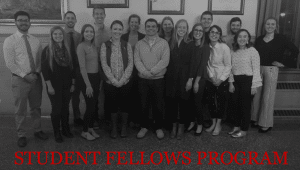
Editor’s note: This article first appeared at National Review Online.
‘Start the song already! It’s driving me crazy!” yelled my father from the living room after he lost patience with the gradually building, repetitive intro to Rush’s “Cygnus X-1 Book One: The Voyage.” He raised my brother and me in a strict, Christian home. He never quite understood our love of rock music, and experimental, progressive rock was off-the-charts alien to him. “It’s just noise!” he would constantly say. Sometimes, after hearing crazed lyrics and wild guitar riffs screaming from our rooms over a frenzied drum beat, he would channel his inner Southern Baptist voice and dismissively declare, with pained, sincere concern for our very souls, “That’s the devil’s music.”
I could understand my father’s perspective. With popular songs titled “Highway to Hell,” “Runnin’ with the Devil,” “Devil’s Child,” “The Number of the Beast,” “Shout at the Devil,” and “Sympathy for the Devil,” not to mention the rumor that Kiss stood for “Knights in Satan’s Service” (which Gene Simmons’s infamously hellish bat makeup and his attending blood-spitting and fire-breathing antics no doubt helped spread), the rock music of my youth did appear satanic. Ever since Christian fundamentalism swept across the American landscape, many people within the Christian community have struggled with popular culture, and that struggle has never been so fierce as when it pertains to rock music.
The nuanced personal, practical, theological, and spiritual dynamics of Christian musicians negotiating their professed faith while pursuing careers in popular rock music is the subject of Mark Joseph’s meticulously researched book Rock Gets Religion: The Battle for the Soul of the Devil’s Music. Joseph is no stranger to this topic, having written two previous books exploring the complex relationship between religion and rock music: The Rock & Roll Rebellion and Faith, God, and Rock & Roll. In this latest addition to this rock-culture triptych, he levels his extensive journalistic background and rock-industry experience to trace the exodus of many Christian rockers from the contemporary Christian music (CCM) scene and to chronicle their tumultuous entry into the mainstream of rock and roll.
As with any responsible historical survey, Joseph presents the good, the bad, and the ugly. He largely lets the testimonies, interviews, and reviews of these musicians speak for themselves. Though the book is a bit lacking in cultural analysis, Joseph is an honest, detailed, and objective historian of a most curious contemporary cultural phenomenon — the explosive influx of Christians into the mainstream rock industry since 2003. His research is extensive, and most of the main content chapters have well over one hundred documentation endnotes. He also makes extensive use of long blocked quotes, thereby ensuring the accuracy of his chronicling and assuring readers of the legitimacy of his cultural claims. Rock Gets Religion is an important contribution to the field of popular-culture studies in general, and it is a must read for anyone interested in the relationship between Christianity and contemporary music.
Joseph contextualizes this book with a compelling opening chapter that clearly and succinctly outlines the cultural event. Rock music began as a rebellious reaction against cultural conformity and political authority, and it developed into an expression of hedonism that celebrates debauchery. Since 2003, however, the rock genre has experienced a curious post-secular religious revival and a rapid influx of Christian musicians. Joseph outlines four key explanations for this trend: (1) new groups of musicians from the CCM industry maintaining connections with their Christian music labels even after signing with mainstream labels; (2) established CCM musicians leaving their Christian labels and going mainstream; (3) young Christian artists bypassing the CCM industry entirely and going straight to secular music labels; and (4) Christian contestants from American Idol breaking into the mainstream music industry. Joseph provides convincing evidence to demonstrate that by the early 2000s, a full revolution was underway in which Christian rockers were breaking away from restrictive CCM labels and/or seeking wider acceptance and broader artistic legitimacy by pursuing mainstream music labels.
The result of this music revolution was far from ideal or idealistic. As with any human cultural endeavor, the exodus of musicians from CCM into the secular music industry was (and remains) complex. Many Christian artists have stumbled and engaged what could be described as deconversion experiences, while providing other musicians opportunities to live out their personal faith professionally and thereby to minister to a broader audience in spiritually significant and life-changing ways.
Early in the book, Joseph describes the perilous adventures of Christian musicians who moved from gospel and CCM environments into the popular music industry. Popular musicians such as Katy Perry, Jessica Simpson, Miley Cyrus, Avril Lavigne, Kanye West, and Evanescence ventured into the secular musical world and questioned, or in some cases abandoned, their Christian roots and convictions. All of these artists started with the intention of sharing their biblical faith with the secular world, but they ended up succumbing to the seductions of mammon and embracing the secular world instead of remaining Christian within it.
At the same time, Joseph shows that other mainstream artists have found ways to honor the foundation provided by their Christian fans and keep their values intact, even as they ventured boldly into the secular rock market. Such rockers as MercyMe, Stacie Orrico, Joy Williams, Chevelle, and Switchfoot successfully transitioned as crossover bands, appealing to a broader secular audience with their message of hope and inspiration while remaining faithful to their earlier Christian fans and not selling out their faith to popular interests.
Other rockers such as Dave Mustaine of Megadeth, Scott Stapp of Creed, Cold War Kids, and The Fray belong to a third category: artists who have struggled to maintain a Christian faith that emerged while working within the mainstream rock-music industry. For such musicians, rock was still a cultural rebellion, all the more so, in fact. After all, these Christian rockers were rebelling against the established materialism, nihilism, and hedonism that characterized the rock-and-roll status quo.
Though Joseph is content to let the abundance of documented artifacts organically create the overall narrative of the book, supplying little cultural analysis of his own, Rock Gets Religion is ultimately successful in conveying a core thematic message: For Christians to be culturally relevant and significant today, they must eschew 20th-century fundamentalism and escape their various Christian cultural bubbles so as to have direct impact on contemporary society. It is no longer enough to simply preach to the choir.
However, as several of Joseph’s cautionary tales reveal, Christian artists and musicians must be intentionally in the world but not of it. They must not succumb to the materialist pressures or hedonistic allurements of the industry. Maintaining this precarious balance, as Joseph’s many examples illustrate, requires that Christian artists be grounded in sound theology and surrounded by like-minded members of their faith community who can support their Christian discipline and encourage their cultural ministry. Whether readers are musicians, artists, or just Christians seeking to be salt and light in their spheres of influence, the central message of this book is instructive: Work as unto the Lord, ground yourself in sound biblical theology, remain humble in all things, surround yourself with mature and supportive believers, and always confess and repent when choices lead you astray. Following such biblical guidelines will allow any Christian to cruise alongside secular culture and invite many onto the narrow road traveling away from perdition and toward eternal blessing.


